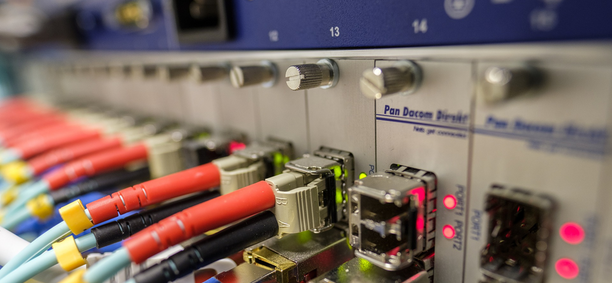How internet providers supply consumer demands
Internet Service Providers: An Introductory Guide for Intending Customers
Across the UK today, there are loads of internet providers present, and each provider has its unique set of products and services.
In this article, we'll be taking an in-depth look at the definition of Internet Service Providers, how they work, and what they offer.
After reading some company reviews about telecom, you'll be able to find one that's tailored to suit your needs.
What Is an Internet Service Provider?
From catching up on our favourite sports, events, news, and movies, the Internet is at the epicentre of everything we do. However, not everyone knows how access to all these online resources comes about.
Internet Service Providers, popularly known as ISPs, are companies responsible for providing internet access. Here, data transmission means can vary, including DSLs, cable modems, and various interconnects that are wired and wireless in nature.
Usually, these ISPs accord consumers the luxury of communicating without hassles with other people by making email provisions. Here, customers can open as many accounts as they'd like to have.
If you think that ISPs specialize in email-only services, you're mistaken. Internet Service Providers also offer phone, mobile, television, and website services. However, it's worth noting that an Internet Service Provider, most times, specializes in one offering.
That said, ISPs are now taking the form of cable and mobile companies. To access their services, patrons have to pay for internet deals on offer by these companies. For example, taking a closer look into Hyperoptic reviews can give you an idea of bundles available.
Where It All Began
Not everyone could access the Internet when it was first invented. People who could use this innovative add-on were individuals who worked for the government or students at top colleges and universities.
As soon as universities and colleges started making use of the Internet, the idea of ISPs was created. The very first ISP had one goal - grant internet access to employees (at government, universities, and colleges) from the comfort of their homes and elsewhere.
How It Works?
First off, customers pay Internet Service Providers in the form of subscriptions to access the Internet. These ISPs (usually smaller entities) pay other ISPs to access their facilities to facilitate internet access. Here, the circle goes on and on.
However, with the information of paid ISPs and entities kept private, it's pretty strenuous to keep track of your network status. That said, Internet traffic bounces off Tier 1 carriers onto Tier 2 and 3 variations. After this process is complete, online information gets to its final destination.
The above analogy is just a single example as ISPs usually have Points of Presence (PoPs) in their thousands. PoPs are often referred to as physical servers, ATM switches, aggregators, and Routers, all crucial to the spread of internet services.
Some ISPs offer free services to patrons. However, to garner revenue, these companies, commonly known as "free nets," employ banners and other ads.
How About Your Internet Enabled Device?
Your phone or PC requires some special routing, telecommunication, and networking properties present to access the Internet. Since these infrastructures are distinctive, ISPs usually have to "rent" them to get networks vital for the consumer's Internet access.
Hard Time Selecting an Internet Service Provider? Here's How To Spot The Best Companies
As we all know, Internet service and access is everything these days. It's the primary source of information and entertainment, and in its absence, you'd be cut off from the modern age.
When searching for the best internet provider, here are some things you must consider:
1. Availability
It's pertinent to check the availability of an ISP, especially if you reside in a rural area. Although poor network services characterize most rural settlements, businesses and homeowners can opt for satellite options, broadbands, or 4G-enabled networks (perfect under the right circumstances).
2. Speed
Imagine making a simple Google search and having to wait for ages before results pop up. Frustrating, right?Well, if you're looking for the best companies that offer internet services, you'll have to check the bandwidth. Bandwidths are important because they give you an idea of what to expect on the maximum value an ISP can sustain for data transmission.
Although some ISPs might feature high numbers, compare them and the actual offerings other users are getting, so you can know what to expect realistically.
3. Cost
Cost is another determining factor when you intend to engage an Internet Service Provider. For instance, if you're a small business owner, going for subscriptions that large entities pay for isn't realistic.
You should make sure to go with ISPs that offer flexible services whilst ensuring that speed and availability remain a priority.
How Reviews Come into the Mix?
Internet Service Providers that offer similar services, as seen on reviews of Direct Save Telecom, abound in the UK market and selecting the one that's good for you most times isn't as easy as it seems.
That said, always check past consumer reviews to get that broadband that's fast, available, and cost-effective all at once!






















